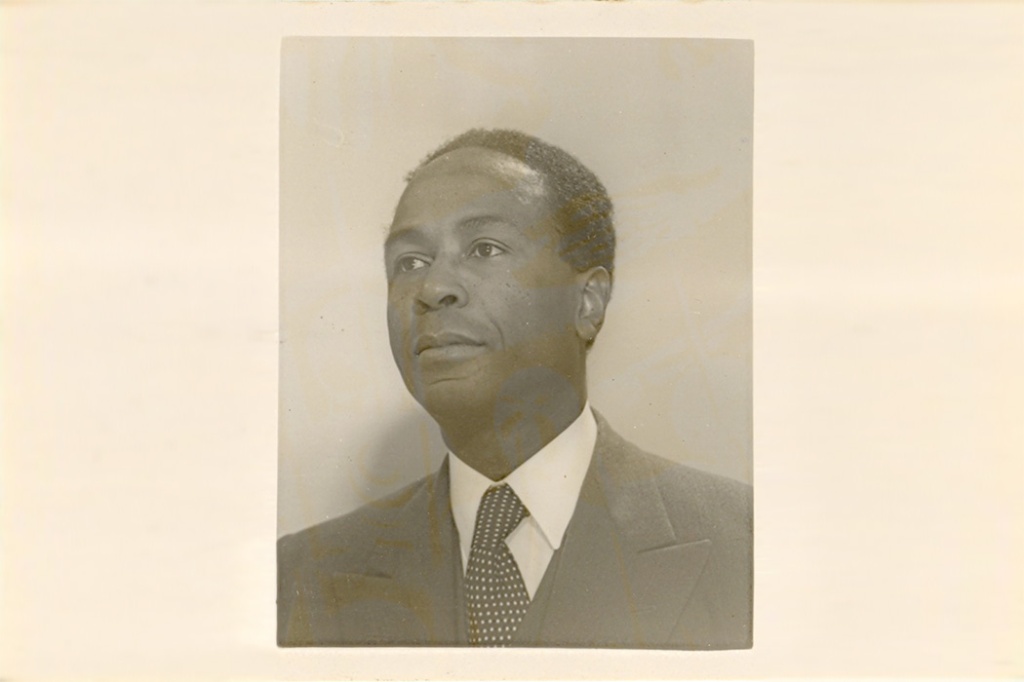George Padmore was a journalist and pan-Africanist who lived and worked in Germany and Austria from 1929-1933 as editor of The Negro Worker, a Black-run, international communist newspaper. Though he is also known for his later anti-imperialist writings and his status as an advisor during the foundation of Ghana, his work during his time in Germany and Austria laid the foundation for his future endeavors.
Born in the British colony of Trinidad as Malcolm Ivan Meredith Nurse, Padmore first arrived in the U.S. to study medicine in 1924. After joining the Communist Party, he began writing under the pseudonym of George Padmore to protect his identity and avoid deportation. Once established in the Party in the US, he was chosen by Moscow as an African-American delegate for an International Conference of Negro Workers.
Padmore was instrumental in the success of this conference and the paper it spawned – The Negro Worker – which was established to provide anti-colonial perspectives to colonized peoples around the world, specifically in Africa and the Americas. Hamburg was chosen as the location for the newspaper’s headquarter due to its status as an international port city, and, after offices were procured, Padmore moved to the city to serve as editor for The Negro Worker between 1930 and 1933.
He also wrote for the paper and in his articles, Padmore covered events in the Soviet Union and, due to his belief in Pan-Africanism, the rising tides of national liberation in the British colonies, and other explorations of British colonial rule. Padmore also wrote two other works that did not appear in The Negro Worker, a book and an article for a British paper. While there are no official numbers on how widely circulated The Negro Worker was, archives indicate that it was read across the globe but only by a small number of readers. Due to the small number of sales and lack of financial support from Moscow, Padmore made his public departure from the paper in 1933.
Shortly after Padmore’s departure, the offices of The Negro Worker were raided by a National Socialist mob. The paper was banned from publication in Germany, and George Padmore, due to his status as an English subject, was deported to England, where the publication was also reestablished, albeit without Padmore’s participation.
After a brief period of apparent inactivity, Padmore was abruptly expelled from the global communist movement. According to the disciplinary body of the Communist Party, Padmore was removed for interacting too freely with bourgeois groups and provocateurs. While he was interacting with these groups, it was Stalinist policies and the lack of broader communist support for African workers that drove him there.
After his expulsion, Padmore would remain a socialist but took a notably more moderate stance in later works. While he strongly advocated for Pan-Africanism, he limited his writing to a less revolutionary tone to avoid making himself a target of the British government. The Negro Worker, for its part, wrote four more articles against Padmore but would be dissolved in 1937. While he was never accepted into mainstream communist circles again, he fought throughout his life for an independent and united Africa. He died in 1959 at the age of 56 and was buried in Christiansborg, Ghana for his support in the early days of that country’s independence.
Logan Carter

Source:
George Padmore, ca. 1950 via Department of Special Collections and University Archives, W.E.B. Du Bois Library, University of Massachusetts Amherst.

George Padmore publishes the Negro Worker in Hamburg (1929 – 1933) by Logan Carter is licensed under a Creative Commons Attribution-ShareAlike 4.0 International License. Permissions beyond the scope of this license may be available at https://blackcentraleurope.com/who-we-are/.